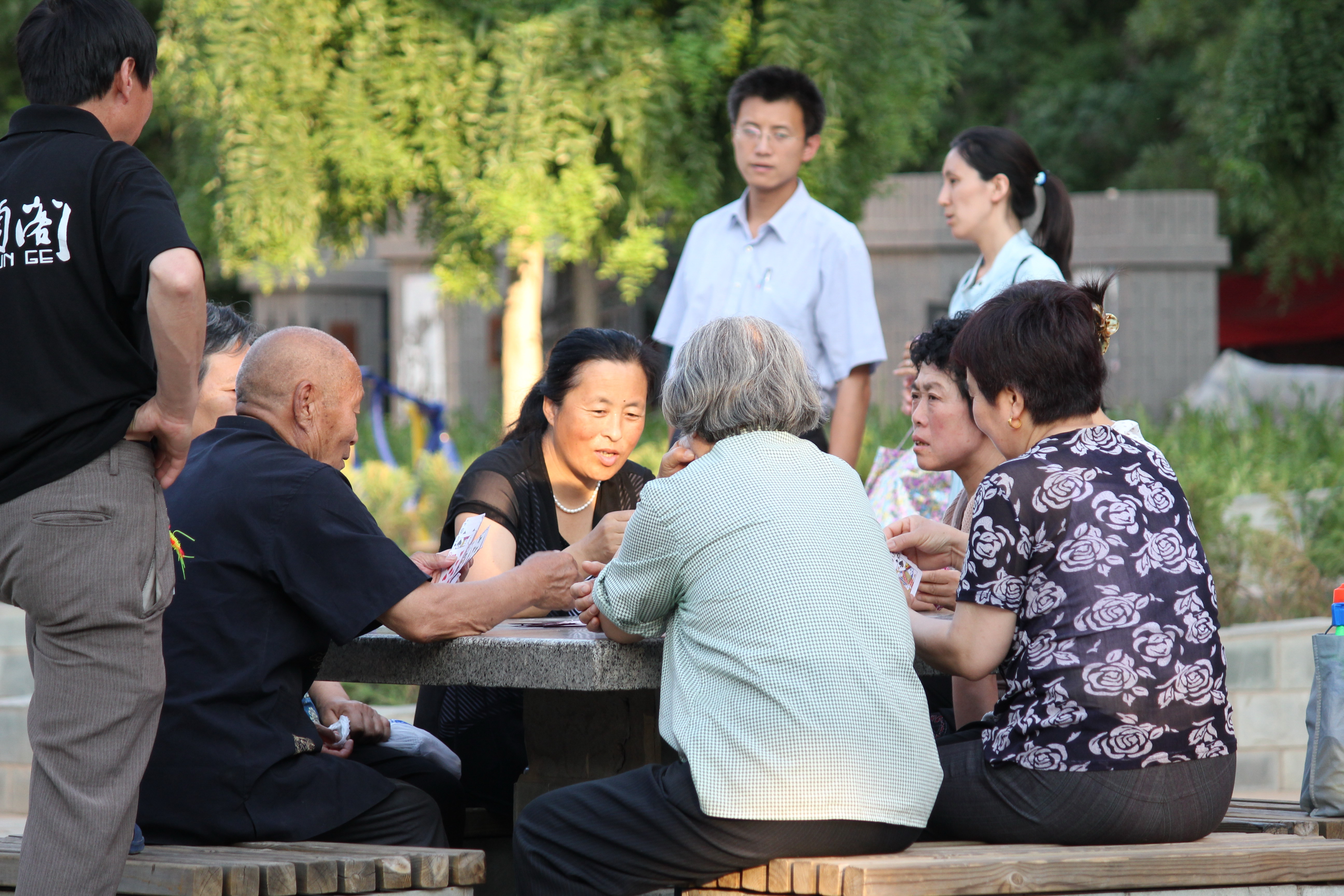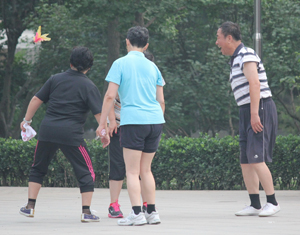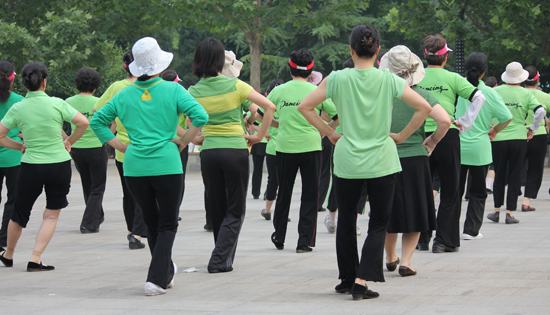
REVIEW: Apparently, cricket fighting was all the rage in imperial China, a sort of insect kung fu.
Two grumpy old men continue the sport in Chinese movie Shower, which centres on the comings and goings at a traditional Beijing bathhouse. Wrapped in towels, amid the bathhouse steam, the entertaining pair banter over whose cricket will reign supreme in each round of entomologic fisticuffs, providing some of the films most laugh-out-loud moments.
And for me, the movie’s most poignant.
We are told, by cricket-fighter number one, his eyes sad behind coke-bottle glasses, that crickets can only survive at ground level. The hutong neighbourhood, with its old-style courtyard housing and communal bathhouse, is set for demolition and its residents will be relocated to swish new apartments. And so, with the move up in the world comes the end of a simple pleasure, one that had survived thousands of years.
I find nothing on the internet to prove crickets are adverse to penthouse living, but I do find some recent online references to the ancient sport, so I ask a local colleague if he knows any hidden corners of Beijing where I might find crickets for sale.
“No, cricket is still a very unpopular sport in Beijing, or in China,” is his confused reply. “But I have seen some students playing in a nearby university,” he adds helpfully.
We get to the same page eventually, but as for cricket fighting? “I have never seen it before, I mean in real life,” he tells me. “I read in books that people have that kind of tradition of fighting crickets, but now people play their computers, World of Warcraft.”
Hutong life
Ruby Li, host of the movie night where Shower was screened, agrees cricket fighting, and many of the other low-key delights of traditional hutong life depicted in the film, including the bathhouse, are remnants of a bygone era.
“From my perspective this kind of movie is out of date because we Beijingers, when we are watching this movie, we are like ‘Oh, we did this before’,” explains Li. “It’s like the director is recording life for us, because everything is just changing.”
There are, of course, some who don’t need the history lesson.
The China Daily’s Beijing Metro section has a regular fixture where a taxi driver is given the space to give his six jiao worth on topics of the day. Earlier this year, when asked about the demolition of old-style communal bathhouses, the “talkative taxi driver”, as the paper calls him, says, “It’s a really sad topic. Many of us have great memories of bathhouses…no families had showers or baths at home, everybody would go to the public bathhouses.”
Having only started taking showers at home in the late 1990s, the taxi driver muses, “Bathhouses aren’t there to just scrub away the dirt. For old Beijingers, going there is about hanging out and meeting friends. It’s something like a ritual.”
According to another story in the China Daily, in 1949, when the Communist Party seized power, there were over 3000 hutong in Beijing; today, an estimated 1000 remain.
However, the bulldozers are stalling. In 2007, a hutong neighbourhood dating back to the Yuan dynasty of the 13th and 14th century was slated for demolition to make way for a flashy tourist development, including, ironically, a museum. Public outcry and negative local and international media attention forced local authorities to review their plans and the neighbourhood was saved.
Peaceful laneways
Today tourists to Beijing, myself included, flock to the area, wandering the maze of peaceful laneways, desperate for a taste of the ‘authentic’ Beijing. On the main avenues there are restaurants and relaxed tourist stores aplenty while in adjoining alleyways tradtional hutong life continues, communal toilets - if not old-style bathhouses - and all.
Others are less nostalgic. Chu Daye, a 28-year-old website editor, tells the China Daily: “I lived in a hutong all my life with my parents and we crammed ourselves into a 10-square-metre room. It was noisy and it was hard to concentrate when I was studying. Now we live in a 60-square-metre apartment, which is much better.”
 Modernisation or preservation? Regardless, a city’s urban design does not have to dictate its cultural soul. From my perspective, it seems you might take the old Beijinger out of the hutong, but you can’t take the hutong out of the old Beijinger.
Modernisation or preservation? Regardless, a city’s urban design does not have to dictate its cultural soul. From my perspective, it seems you might take the old Beijinger out of the hutong, but you can’t take the hutong out of the old Beijinger.
At 7.30 this morning, I leave my 20-storey-high apartment in northeast Beijing, buy a warm dou jiang, or soy milk, from the hole-in-the-wall restaurant next door, and walk the short distance to my neighbourhood park. Here, I sit on a bench and I watch; I watch community happen, despite the fragmented contemporary housing arrangement.
A group of women, in matching lime-green T-shirts synchronise a dance routine to thumping music; a handful of men practice tai chi, zen-like under the shade of some trees; women huff and puff on the state-provided exercise equipment, the early morning heat already overwhelming; raucous laughter erupts from a crowd of badminton and jianzi (a Chinese version of hacky sack, played with a shuttlecock) players; while others simply sit, like me, watching, or chatting with friends.
What’s missing in this pleasant neighbourhood, in my opinion, is a bathhouse of the like epitomised in Shower. Despite modernisation, they are still popular in Japan, Turkey and parts of Eastern Europe; in fact intrepid travelers in these parts willingly pay to be pummeled, stretched and poached in traditional bathhouses alongside the locals.
Beijing! Bring back the bathhouse. Let’s have a communal-bathhouse renaissance.
And call me old-fashioned, and possibly even a bit brutish, but bring back cricket fighting while you’re at it.

China Through Cinema Reporter Kim Bowden reviews a series of films as she attends the "China Through Cinema" events. She provides a glimpse into life in Beijing, a rapidly evolving city with an incredible history. Today she discusses Zhang Yang's 1999 film Shower.



